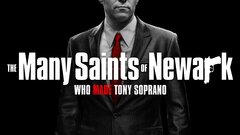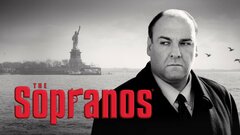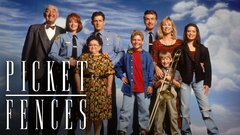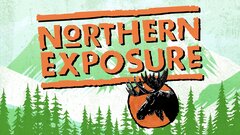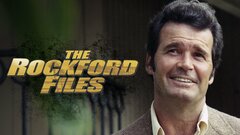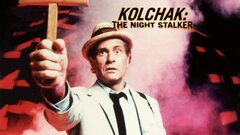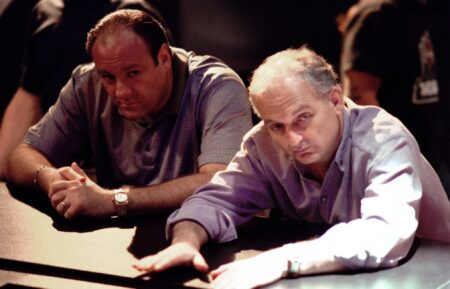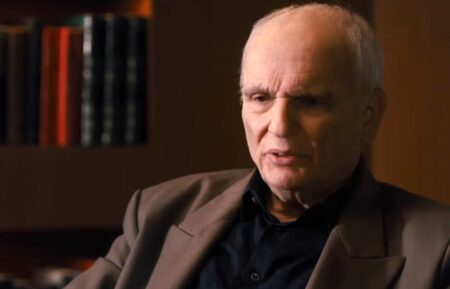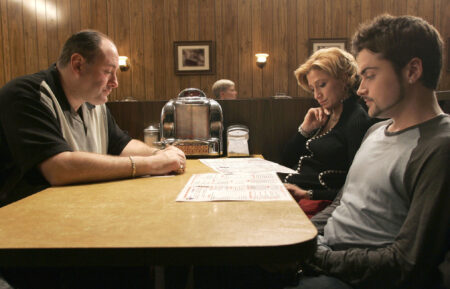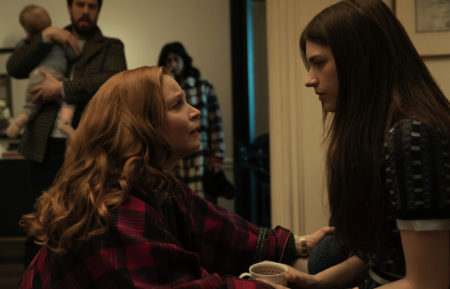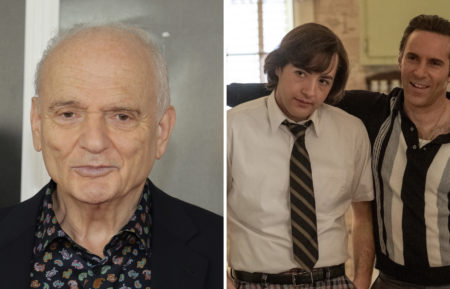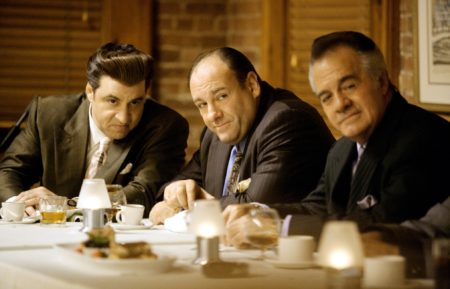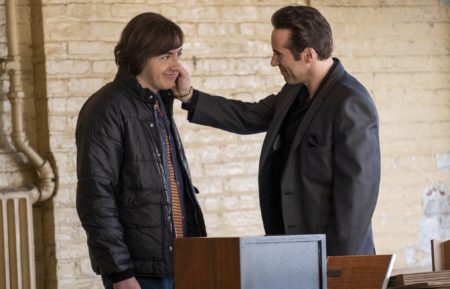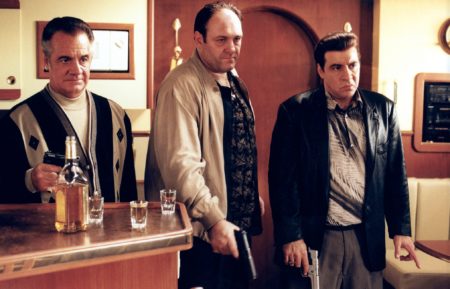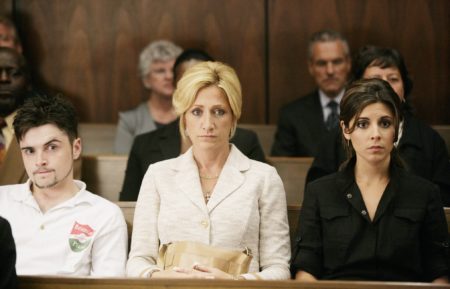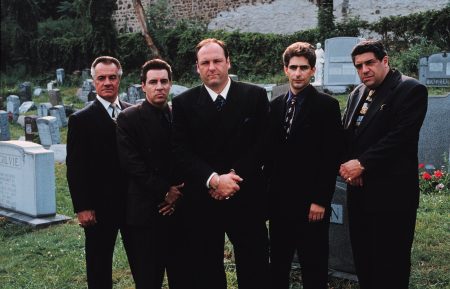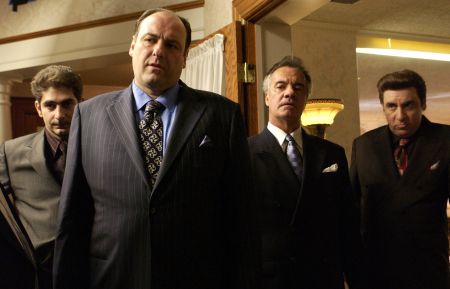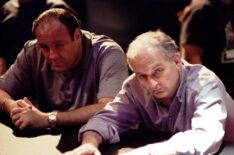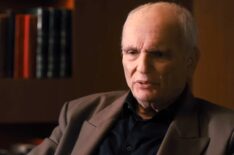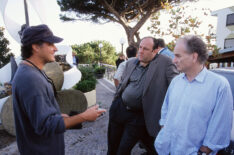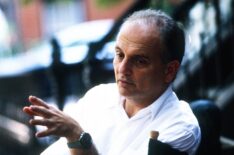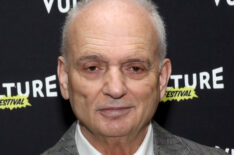After spending two decades trying to find his footing on the small screen, writer-director-producer David Chase finally grabbed hold of the brass ring when he created the highly-acclaimed and award-winning series, "The Sopranos" (HBO, 1998-2007). An unusually gritty soap opera centering on the professional and personal travails of New Jersey mob boss, Tony Soprano, the series became an instant hit on its way to becoming one of the most decorated and successful cable series of all time.
Prior to "The Sopranos," Chase forged his path as a writer and producer on the classic series, "The Rockford Files" (NBC, 1974-1980), and later earned acclaim for his small screen movie "Off the Minnesota Strip" (ABC, 1980). Chase struggled throughout the 1980s with failed pilots and forgettable TV movies, while earning critical plaudits - but not eyeballs - for his civil rights drama "I'll Fly Away" (NBC, 1991-93). After guiding "Northern Exposure" (CBS, 1990-95) during its tumultuous last two seasons, he was rejected by every network for "The Sopranos" before HBO swooped in and developed the show, which earned seemingly countless Emmys and Golden Globes for Chase and the cast.
Following the series' controversial and much-talked about finale, Chase disappeared for a few years before re-emerging with his hailed feature debut, "Not Fade Away" (2012), which allowed him to begin the process of burying Tony Soprano for good.
Born on Aug. 22, 1945 in Mount Vernon, NY, Chase was raised in New Jersey by his father, Henry, a former engineer who later opened a hardware store, and his mother, Norma, who worked for the telephone company as a proofreader. The young Chase developed a penchant for gangster films and storytelling at an early age, which later led to a desire to become a filmmaker.
But his childhood was less than idyllic. His father was an angry man who belittled Chase at every turn, while his mother was emotionally fragile and constantly on the verge of hysteria. Because of this dysfunctional upbringing, Chase suffered from panic attacks and clinical depression for most of his life. Meanwhile, he sought escape at Wake Forest University in North Carolina, only to see his depression worsen.
While working as a drummer, he later transferred to New York University and decided on pursuing a career in film, a decision that did not sit well with his parents. Chase moved on to earn his master's degree in film at Stanford University and eventually settled in Los Angeles.
Chase landed his first break by adapting the sci-fi/horror novel he wrote called The Still Life into the all-but-forgotten horror flick "Grave of the Vampire" (1974). While he may have craved a big screen career, he segued into television, where he found his greatest success. Chase penned episodes of supernatural procedural "Kolchak: The Night Stalker" (ABC, 1974-75), before landing his first regular writing gig as a supervising producer on the classic detective show "The Rockford Files" (NBC, 1974-1980), which later translated into writing several of the show's subsequent TV movies.
During his stint on "Rockford," Chase shared the 1978 Outstanding Drama Series Emmy with fellow producers Stephen J Cannell, Meta Rosenberg and Chas Floyd Johnson. Before "Rockford" left the airwaves, however, Chase branched out to pen the telefilm "Off the Minnesota Strip" (ABC, 1980), a harsh and gritty drama about a teen runaway (Mare Winningham) who turns to prostitution on the streets before returning home to pick up the pieces of her life. Chase won both an Emmy and a WGA Award for his teleplay, priming the young scribe for further success.
But instead of being able to capitalize, Chase struggled to replicate himself, leading him to write several unsuccessful pilots while branching out to direct an episode of "Alfred Hitchcock Presents" (NBC/USA Network, 1985-87). He wrote two rather forgettable TV movies, "Palms Precinct" (NBC, 1982) and "Moonlight" (CBS, 1982), and had high hopes for the sitcom "Almost Grown" (CBS, 1988-89), but the series lasted only nine episodes before it was canceled.
Chase moved on to work alongside John Falsey and Joshua Brand on the critically lauded, but low-rated civil rights-era drama, "I'll Fly Away" (NBC, 1991-93), which netted him an Emmy nod for writing a 1992 episode. In 1993, he succeeded Brand and Falsey as the executive producer of the quirky dramedy, "Northern Exposure" (CBS, 1990-95), for its final two seasons. Although the show earned a 1994 Emmy nod for Outstanding Drama Series, Chase's tenure endured numerous problems, including the departure of star Rob Morrow, and criticisms for introducing unsympathetic characters and misguided storylines. The show's ratings went into free-fall until "Northern Exposure" was eventually cancelled in 1995.
Chase initially rebounded with a series of "Rockford" TV movies, but all along he was nurturing his dream project: a series about the trials and tribulations of a Mafia chieftain in contemporary society. Originating with the idea that he wanted to do a show based on his mother, Chase filtered 1940s gangster flicks through the contemporary influences of Francis Ford Coppola and Martin Scorsese and blended in typical family problems - overbearing mothers, unhappy marriages, rebelling teenagers - resulting in a series that was unlike anything on network television.
In fact, all the major networks passed on his pilot for "The Sopranos," which seemed destined to follow so many others into the realm of the forgotten until HBO swooped in to the rescue. But the paid cable network never quite anticipated the initial reaction to their new drama that boasted a central character, Tony Soprano (James Gandolfini), who was capable of carrying out a killing one minute and spilling his own guts during weekly sessions with his psychiatrist (Lorraine Bracco). While dealing with the standard struggles of a Mafia boss, Soprano also contended with his resentful wife Carmela (Edie Falco), his underachieving son A.J. (Robert Iler), and his spoiled daughter Meadow (Jamie-Lynn Sigler).
Proving to be a big hit right off the bat, "The Sopranos" earned an almost unheard of renewal for a second season following its initial airing. Later, HBO offered Chase $1.5 million to assure that the series would air for at least four seasons. Their gamble paid off, with "The Sopranos" becoming the cable networks highest-ever rated original series.
Over the course of its seven seasons, his show earned untold numbers of awards and accolades, including several Golden Globes and Emmy Awards for Gandolfini, Falco and Chase. When the "The Sopranos" entered its seventh and last season, the biggest question was not if, but how Tony Soprano would get whacked in the end. But questions remained even after the final episode aired, perhaps one of the most talked-about series finales of all time.
In the final scene, Tony joins Carmela and A.J. at a diner, where they eat onion rings and wait on Meadow to arrive. After a mysterious man in a Members Only jacket disappears into a bathroom while Meadow finally parks her car across the street, Tony suddenly looks up and the screen goes blank, leaving doubt as to whether or not he was indeed killed. While most viewers were confused by the sudden cut to black - some even thought their cable had gone out - it later became clear to many after unyielding discussion on Internet message boards that Tony Soprano was dead.
Regardless of the controversy even years after the final episode, Chase created one of the most commercially successful cable series in the history of television. In fact, "The Sopranos" proved that major success could be found outside the network system and marked the beginning for the medium.
Meanwhile, Chase went into hiding immediately following the last episode - in part to take a much-deserved vacation, but also to avoid what the deluge of questions about what exactly happened to Tony. While on sabbatical in France, Chase conducted an interview with The Newark Star-Ledger, though he remained frustratingly cryptic. In the end, Chase emerged vindicated after winning an Emmy Award for Outstanding Writing for a Drama Series for the series finale in 2007.
After five years out of the limelight, Chase returned to the fore, but this time by making his long-awaited feature debut as a writer and director with "Not Fade Away" (2012), a period drama about a group of suburban teens in 1960s New Jersey who form a rock band and set out to make it big. After screenings at a number of film festivals, the film was theatrically released at the end of the year and generated serious buzz for awards season.
By Shawn Dwyer

